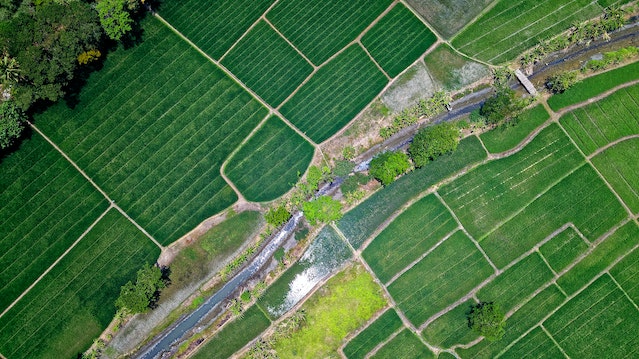The speakers will present two ongoing key initiatives, the Global Strategy to improve Agricultural and Rural Statistics (GSARS), led by FAO, and 50×2030 –a tri-party initiative of the World Bank, FAO and IFAD, working hand in hand to strengthen agricultural statistics systems in developing countries and address the agricultural data gap, setting the basis and providing the key tools to countries and the international community to address food security, achieve SDG 2 (Zero hunger) and monitor the impact of climate change on production and productivity as well as the adaptation strategies of the agricultural sector.
The perspective of one of the beneficiary countries of both initiatives, Benin, will be presented by the Director for Agricultural statistics at the Ministry of Agriculture, who will share about Benin experience and the value-added for the countries of such type of coordinated initiatives.
Agriculture development is recognized as the main driver for reducing poverty, improving nutrition, improving livelihoods, and eliminating hunger in developing countries, particularly in rural areas. The developing countries need to invest in modern agriculture for increasing productivity and production, promoting sustainable agriculture, providing job opportunities, in particular for women in rural areas, and addressing climate change and migration issues. Decisions to be taken in the agricultural and rural sectors need of course access to reliable, comparable, and timely data. Efforts still need to be made for addressing existing data gaps. Efforts at continental, regional and country levels need to be consolidated and investments need to be made in data systems through well-designed mechanisms ensuring mutual accountability and encouraging good performance on achievements.
Sustainable Development Goal 2 (SDG2) provides a rallying cry to examine and resolve the data gap for the agricultural sector. Without good quality data, the international community and national governments will not be able to measure the progress on SDG2 and its objectives to end hunger, achieve food security and improved nutrition, and promote sustainable agriculture. Notably, three SDG2 indicators – those on labour productivity (2.3.1), small-holders’ income (2.3.2), and land area under sustainable production (2.4.1) – measure vital issues in agriculture, but most countries cannot monitor them or other key indicators with the existing agricultural survey systems. The CAADP (Comprehensive Africa Agriculture Development Programme) Malabo declaration provides a similar rallying cry for high-quality data, accountability for results, and transparency in the agricultural sector.
Speakers
- Leonard Mizzi, Head of unit Sustainable Agri-food systems and Fisheries, DG INTPA, EC
- Neli Georgieva, Coordinator of the Global strategy to Improve agricultural and rural statistics, phase II, FAO
- Abul Azad Kalam, Lead Resource Mobilization 50×2030 Initiative, Development Data Group, The World Bank
- Alexandre Biaou, Director for Agricultural statistics at the Ministry of Agriculture of Benin
Language of conference: EN, FR
Language of Q&A session: EN, FR
More information, here.
